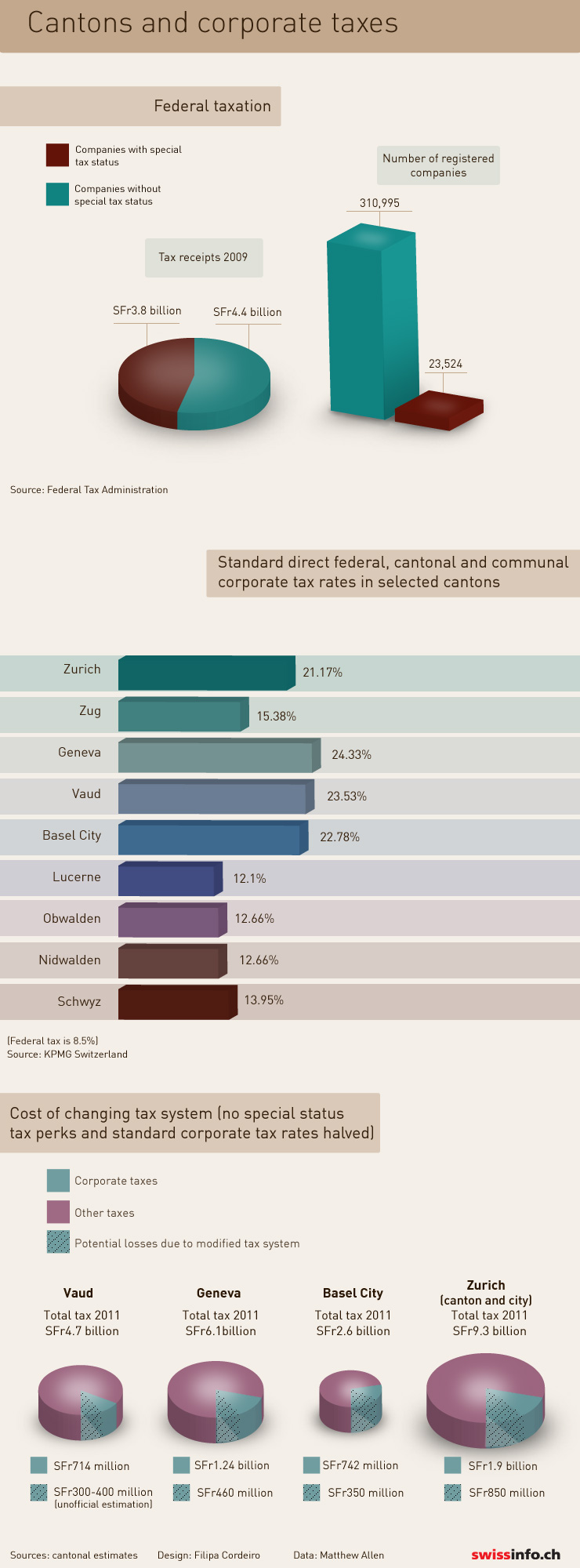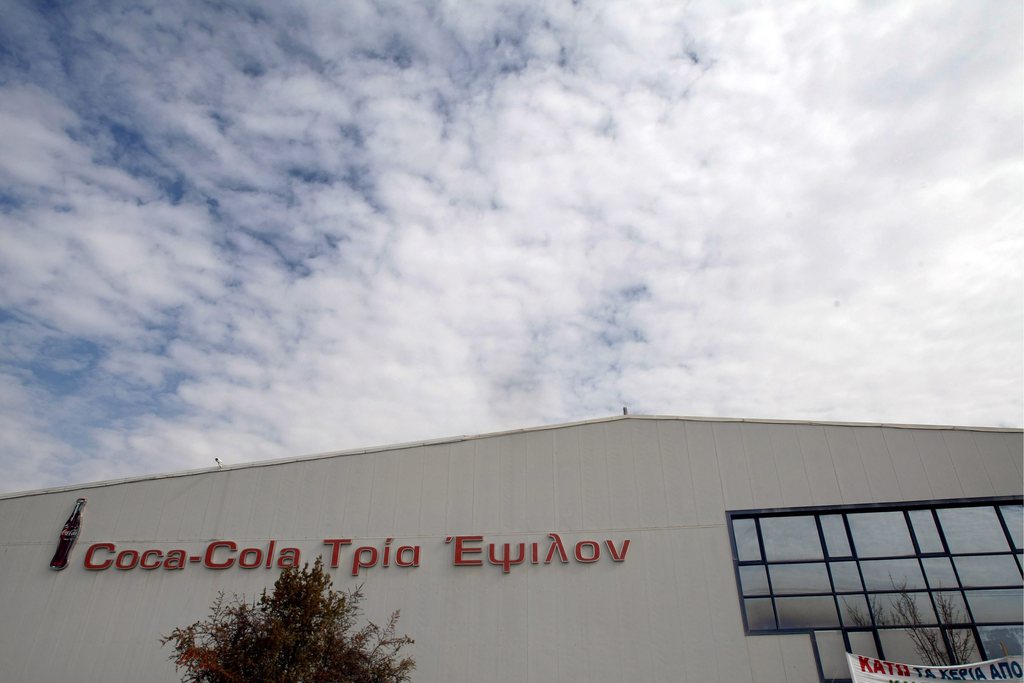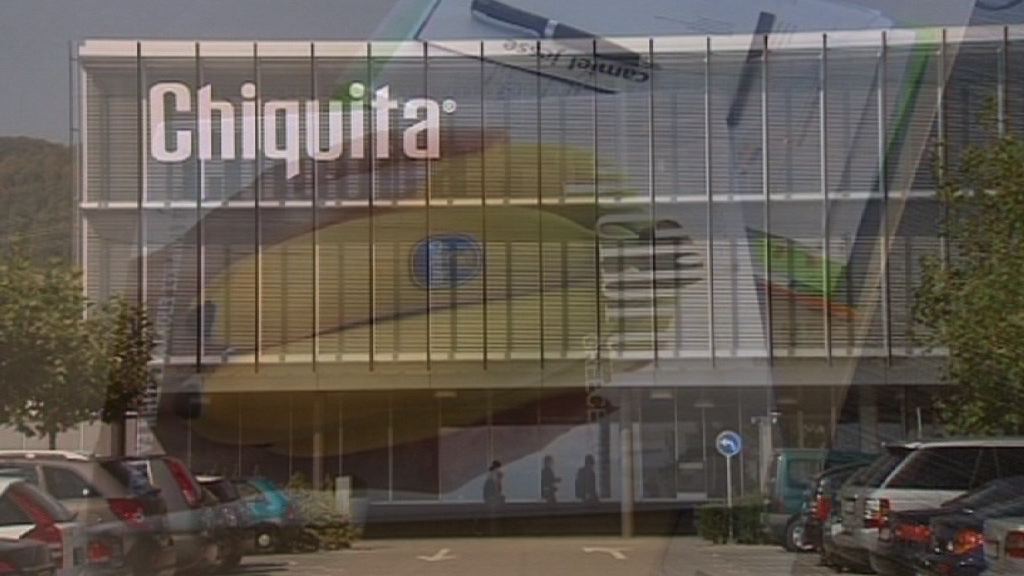Corporates condemned for profit poaching

Switzerland is embroiled in yet another a tax dodging row – this time as an alleged “transfer pricing” hub that allows multinational giants to poach corporate profits, and tax revenues, from other countries.
The legal practice of transfer pricing is supposed to ensure that the activities of large companies in multiple locations are fairly taxed. But critics argue that the system is being increasingly manipulated to achieve the opposite effect.
Transfer pricing could typically apply to a firm that makes components in one country, assembles them in another and sells them around the world while providing marketing and legal services from other locations.
Each unit would bill others for its services, thus transferring the price of its work internally within the same company. The profits each unit accumulates are taxed by the country in which it is located.
But back offices in low tax havens have long been blamed for sucking taxes out of developing countries via transfer pricing. The heat has been turned up in recent months as advanced nations, such as Britain, have also called foul play.
Household names
Big corporate names, such as Starbucks, Vodafone, Nissan and Alliance Boots, have drawn anger in Britain for paying relatively little tax on billions of revenues. In each case Switzerland has been a significant beneficiary.
Switzerland is by no means the only low tax country to play host to small, but expensive support services. Ireland, the Netherlands, Luxembourg and Bermuda are also among the favoured locations for administrative offices.
But Swiss-based pressure group Alliance Sud is convinced that Switzerland’s cantonal tax system, that can levy a lower rate on overseas profits, gives the country a prominent role in the global transfer pricing system.
“Switzerland offers excellent opportunities for transfer mispricing because of the special cantonal tax regimes,” spokesman Mark Herkenrath told swissinfo.ch.
“This represents an open invitation for companies producing in developing countries to shift profits to Switzerland.”
Third world loses
Christian Aid calculated in 2009 that transfer pricing abuses whisk away $160 billion (SFr152 billion) of tax revenues from poor countries to richer ones every year.
“It is probable that the amount of taxable profits sucked out of developing countries by corporate transfer pricing is larger than the total aid payments made to these countries by developed nations,” Alliance Sud’s Herkenrath told swissinfo.ch.
SwissHoldings, the umbrella organisation that represents multinational firms present in Switzerland, argued that large corporate players adhere to global regulations.
“Every country has the right to tax the added value created by the services that operate in that location. The current transfer pricing regulatory framework should be sufficient to ensure that this happens,” SwissHoldings chairman Christian Steifel told swissinfo.ch.
Global rules
The Organisation for Economic Co-operation and Development (OECD) has been entrusted with drawing up international standards for transfer pricing.
Under these standards, companies must provide viable commercial justification for redistributing their profits around the world.
To make sure that transfer prices are not inflated (mispriced) to keep profits away from high tax regimes, subsidiaries are required to keep an “arm’s length” distance. In other words, they must negotiate as if each party were a separate company setting prices on the open market.
However, critics such as Olivier Longchamp from the Berne Declaration pressure group, believes that firms exploit the difficulty of calculating the market value of “invisible” services, such as brand name royalties.
He also doubted whether Switzerland has the motivation to police and enforce OECD rules, to which Switzerland is a signatory nation.
“Switzerland is not in the end a country that suffers from transfer mispricing – on the contrary, the people here profit from it – to the cost of people in poorer nations,” Longchamp told swissinfo.ch.
EU challenge
An ongoing tax row with the European Union threatens to derail Switzerland’s ongoing status as a transfer pricing hub. Swiss cantons could well have to ditch the policy of taxing the foreign derived profits of many multinational firms at a lower rate than domestic profits.
SwissHoldings defended the country’s right to play host to headquarters or subsidiary branches of multinationals. Stiefel pointed out that the 10,000 such firms in Switzerland create roughly one third of all jobs, corporate tax revenues and economic output.
“Multinational corporations are an economic and social success story in Switzerland,” Stiefel told swissinfo.ch. “We urgently call on the government and cantons to formulate a comprehensive, internationally compatible strategy that preserves Switzerland’s status as a fiscally attractive location for such enterprises.”
Transfer pricing is the legal and often legitimate system of multinationals internally moving assets from one location or branch to another.
In 2002, the OECD estimated that 60% of global trade took place within multinational companies in the form of transfer pricing.
However, it also opens the door for multinationals to move profits away from high cost locations by setting up back offices in tax havens that charge for their services.
These often sparsely staffed units can collect huge brand name royalty fees or charge for research and development on products made elsewhere.
Commodities multinationals, many of which are established in Switzerland, have often been accused of sucking profits and taxes out of third world countries using accountancy tricks. These allegations have been roundly denied.
In recent cases involving Alliance Boots, SAB Miller, Vodafone, Nissan and Starbucks, companies have been accused of using Swiss-based subsidiaries to milk taxes away from more expensive tax jurisdictions.
British Prime Minister David Cameron and German Finance Minister Wolfgang Schäuble recently called on the G20 group of influential nations to look into the connection between transfer pricing and tax avoidance.
Big high street brand names have also been summoned to a British parliamentary investigation that is also looking into the issue.

In compliance with the JTI standards
More: SWI swissinfo.ch certified by the Journalism Trust Initiative




You can find an overview of ongoing debates with our journalists here. Please join us!
If you want to start a conversation about a topic raised in this article or want to report factual errors, email us at english@swissinfo.ch.